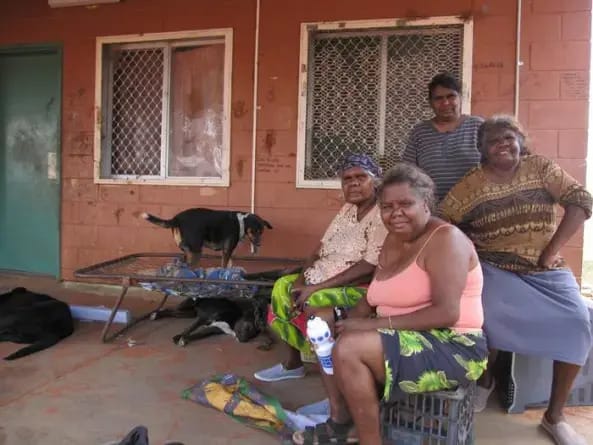The abilityNEWS Daily
The Big Story

“Exactly how do you get an individualised plan again?” (photo courtesy NACCHO ATSL Health News)
Some people are still missing out
George Disney, Yi Yang, Peter Summers, Alexandra Devine, Helen Dickinson, and Anne M Kavanagh were very careful when they wrote their February MJA article. Their statistics were solid. They could have screamed, ‘Here’s proof, the NDIS is wealthy people’s welfare’. Instead, they let the data speak for itself.
Their analysis of statistics from 2016 to 2022 found that eligibility rates were lower for women and girls, older applicants, and people from socio-economically disadvantaged areas, and especially for those with physical, psychosocial, or unclassified disabilities.
While plan sizes and spending among eligible participants showed smaller disparities, the study highlighted persistent social inequalities in access to the scheme. Their findings suggested an urgent need to review NDIS eligibility processes to ensure fairer outcomes.
And what happened? The result has been exactly what you would expect. Sotto voce murmuring, careful nodding and displays of concern, but absolutely no desire to tackle the central issue.
Why? Because of cost. And there’s no pushback either. The marginalised people who are missing out are exactly that: disempowered and excluded from our national conversation.
Two letters in this month’s MJA revisit the study. Both are concerned with an even more marginalised sub-group; people in regional and remote areas. They point out that the disparity faced by those living in ‘real Australia’ - the outback and First Nations people - face massive obstacles before they can become eligible for the NDIS.
Sadly, the sort of scheme that works well for an articulate, empowered and wealthy person living in the city (capable of spelling out their specialised needs and accessing individualised services to meet them) doesn’t - and probably can’t - ever exist in the bush.
The requirements are different and need re-examination from the ground up.
The answer may be either to make people more capable of accessing the NDIS; or it may be to reconstitute foundational supports that embed disability services.
Whatever option is chosen, something must be done. Nodding and tut-tutting has gone on for far too long. The letters demonstrate there’s no doubt about the problem or the solution: what’s missing is the political will to address the issue.
The Briefing

Mental health system in crisis
by Mental Health Australia
Mental Health Australia says the system is under major strain, with structural failings causing people to be overlooked and unsupported. "The Four Corners program aired on ABC on Monday 2 June 2025 simply confirms what our sector has been saying for years: the mental health system is in crisis.” Community leaders argue meaningful reform must prioritise early intervention and properly resource community-managed mental health services.
Minimum wage rise still leaves low-paid workers worse off than in 2020
by The Australia Institute
A rise in minimum wage aims to ease pressure on low-paid workers hit hardest by recent cost-of-living increases. Despite this increase, Australia Institute research shows the real value of award wages has fallen nearly 4% below September 2020 levels. This increase will still see award wages 1% lower than they were five years ago.
Cerebral Palsy Alliance brings lived experience to the forefront at National cCMV Symposium in Melbourne
by Cerebral Palsy Alliance
The National cCMV Symposium in Melbourne highlighted personal stories to shed light on congenital cytomegalovirus and its impacts. Cerebral Palsy Alliance emphasised lived experience to deepen understanding and improve support for families affected by the condition.

The Wrap
NDIS changes leave immobilised clients without underwater scuba therapy
by ABC
Under regulations announced in late 2024, Scuba Gym is no longer included in the National Disability Insurance Scheme (NDIS) support list, which dictate what recipients can choose to spend their allocated funding on. The only time some people with MS can move is when they are underwater.
NDIS is steeped in mystery: Ruston
by The Australian
As the National Disability Insurance Scheme clocked over 700,000 participants for the first time in the last quarter, Senator Ruston the government had “a lot to come clean with Australians about” when it came to the reforms and their implementation.
Quiz: What does 'inclusive education' mean in Australian disability policy?
(a) Special schools only (b) Mainstream schools with support (c) Online-only education
Answer – Inclusive education means students with disability are supported to learn in mainstream schools.
The Diary

